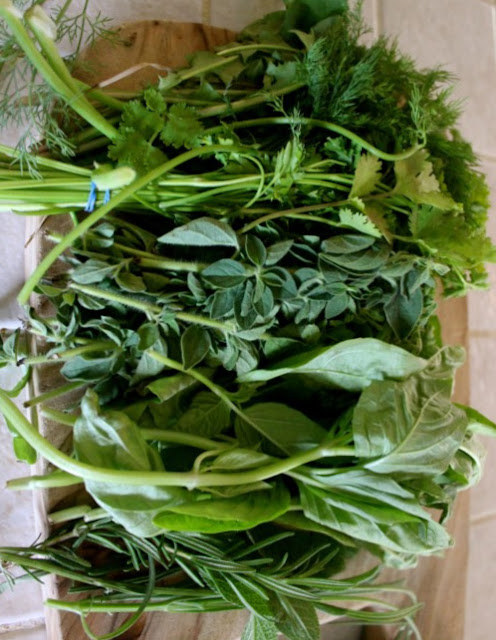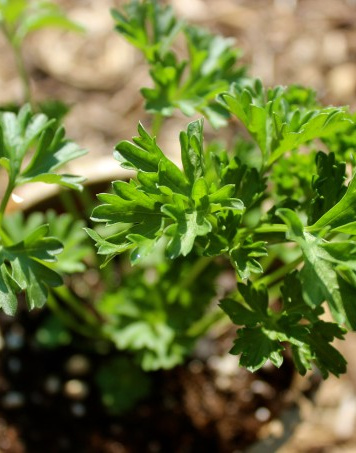Justin Rhodes, author of The Rooted Life coming soon to bookstores nationwide, and founder of Abundant Permaculture has emerged as a leader in the permaculture movement over the last couple of years. I have had the honor of meeting him and his family several times since we both began our chicken keeping journey.
A couple of years ago, Justin and I sat down to chat about how to "herbify" your chicken flock. Something I have been doing for more than a decade with my own flock and that I outline in more detail in my first book Fresh Eggs Daily: Raising Happy, Healthy Chickens Naturally.
Below are some of the highlights of that conversation.
How to Herbify your Chicken Flock
Justin started out by saying, "I’ve got some confessions to make. First of all, I don’t know EVERYTHING there is to know about permaculture or raising chickens naturally (and I will quickly admit, I’m always learning)....
Now that the idea of using herbs with chickens has caught my attention, I’m wondering how I missed it....
After I met Lisa Steele of Fresh Eggs Daily, I couldn’t help but wonder if I could take the health of my flock to another level. I imagined I could easily improve production and apply natural remedies, if something went wrong."
He continued by saying "’I've made a decision to “herbify” my flock, so in this article I’ll be interviewing her and then applying her tactics to my chickens. You’ll learn why herbs are so important and you’ll find out which ones you can use.
In addition, I’ll show you how to use them in your chicken house, nest box, run, feed, water, during molting, in the dust bath, and with chicks." - Justin Rhodes
Lisa Steele In Conversation with Justine Rhodes
Justin: I’ve notice that you’ve been using a lot of herbs in your chicken management and am wondering what I might be missing.
Lisa: The nice thing about raising chickens naturally using herbs is that you can pick and choose what works for you. You can choose what parts you want to incorporate – you don’t have to do it all; every little bit helps.
There isn’t much scientific study into the use of herbs with poultry, but the health benefits of herbs for humans and various types of animals has been proven, so it stands to reason those benefits translate to chickens as well.
J: In other words, why use herbs with chickens?
L: Herbs are easy and inexpensive to grow and each provides a different set of health benefits – they range from being antitoxins to natural wormers or antibiotics, some repel insects, others calm or help with respiratory or immune system health.
I believe in lots of preventives instead of waiting until something is wrong. Since chickens are notorious for hiding symptoms of illness, it’s often hard to spot a sick chicken, hard to find a vet even if you do notice something wrong, and then difficult to diagnose or pinpoint the exact problem.
So for me, building strong immune systems in my flock using the herbs is the key, plus the chickens love to eat them.
Best Herbs to Herbify your Chicken Flock
Then our conversation turned to some of the best herbs to use if you're interested in how to "herbify" your flock.
J: What herbs should I start out with?
L: I find all the herbs pretty easy to grow, with mint probably being the easiest!
I would start with those you might also use in cooking, so they do double duty. Things like dill, basil, parsley, oregano are all good choices to start out with.
J: What if I only wanted to acquire or grow ten herbs?
L: I think my top herbs for chicken keeping would be:
Basil – wonderful antibacterial, improves mucous membrane health
Garlic – acts as a laying stimulant and anti-fungal, also benefits the circulation system
Lavender – works as a stress reliever, increases blood circulation, highly aromatic insecticide
Marigolds – also works as a stress reliever, increases blood circulation, contributes to nice orange yolks
Marjoram – thought to be a laying stimulant, also an anti-inflammatory and decongestant, improves blood circulation, acts as a detoxifier
Mint – wonderful insecticide and rodent repellent, antioxidant, aids in respiratory and digestive health, lowers body temperature naturally
Nasturtium – works as laying stimulant, antiseptic and antibiotic, insecticide, thought to be a natural wormer
Oregano – strengthens the immune system, combats coccidia, salmonella, infectious bronchitis, avian flu, blackhead and e-Coli
Parsley – high in vitamins, aids in blood vessel development, works as a laying stimulant
Sage – beneficial for overall health, works as an antioxidant and antiparasitic thought to combat Salmonella
3 Ways to Use Herbs in the Chicken Coop
Good choices for herbs to use in the chicken coop include:
- Basil
- Bay Leaves
- Bee Balm
- Catnip
- Lemon Balm
- Lemon Grass
- Pineapple Sage
- Rosemary
- Thyme
The conversation then turned to...
How to Herbify your Chickens Dust Bath
Mix any or all of the following dried herbs into your chickens dust bath area.
- Lavender, mint, and rosemary are natural insecticides.
- Anise, dill, fennel, ginger, and mint are good disease and parasite prevention.
- Dried wormwood keeps lice and mites away.
- Dried yarrow is anti-bacterial, anti-inflammatory, clears sinuses and respiratory systems, is a stress reliever, heals wounds, and serves as an insecticide.
Next, I showed Justin how to make a neat DIY tiered herb drying rack using old window screens and picture frames.
We wrapped up our conversation talking about...
3 Ways to Feed Chickens Herbs
1. Cut up herbs and make available free choice as a supplement. Garlic would be especially good here.
2. Add any of the other herbs dry or fresh to the daily feed ration.
3. During their molt use anise, dill, fennel, garlic, mint, and/or parsley to encourage feather regrowth.
2 Ways to Use Herbs in Chickens Water
1. Brew an herbal tea with basil, lemon balm, parsley, oregano, and/or dandelion (either fresh or dried).
2. Add smashed garlic cloves to their water and change out every few days.
Justin finished up by saying, "I’m excited to have discovered the use of herbs with chickens, as they make complete sense from a sustainable and permaculture angle.
Herbs are easy to grow and are extremely powerful for maintaining and improving health and productivity of the flock. Thanks to Lisa Steele of “Fresh Eggs Daily” for this enlightenment."
Click here to read our whole conversation.
If you're interested in learning more about using herbs in your chicken keeping, my books Fresh Eggs Daily and 101 Chicken Keeping Hacks both have lots of information on how to "herbify" your chicken flock.
Pin This!
Facebook | Twitter | Instagram | YouTube | Subscribe













